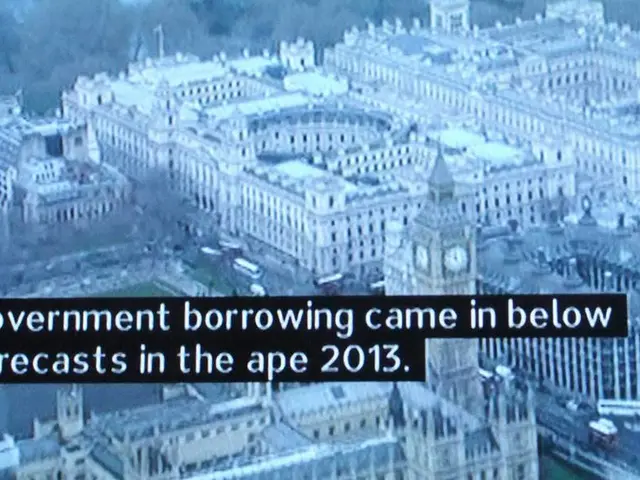Stocks plummet as Israel-Iran tension intensifies, causing market turmoil with Dow Jones dropping by 1.79%
Friday's Stocks Plummet Due to Israel-Iran Conflict
The global stock market took a nosedive on Friday, with the U.S. markets leading the charge, as the escalating military conflict between Israel and Iran sent oil prices soaring and investors scurrying away from risk assets.
In the final moments of the U.S. trading session, Israel launched strikes on Iran's nuclear and missile facilities, prompting retaliatory missile launches from Iran that sent jitters through the market. This tense standoff led to a sharp decline in major indices, with the Dow Jones Industrial Average closing down 1.79%, the S&P 500 closing down 1.13%, and the Nasdaq losing 1.30%.
Oil and defense stocks, on the other hand, witnessed a boom. Brent crude jumped more than 7%, surging 14% during Asia trading hours, while WTI crude approached $74 a barrel. ExxonMobil rose around 2%, and defense firms Lockheed Martin and Northrop Grumman gained about 3% each. Gold also spiked 1.4% to $3,432 an ounce, nearing its April record.
However, this sell-off marked an abrupt end to what was shaping up to be a positive week for equities. Global markets followed suit, with European and Asian equities posting losses of over 1%. U.S. Treasury yields rose, with the 10-year note climbing 7.9 basis points to 4.436%, reversing earlier declines on safe-haven demand. The dollar also rebounded, gaining 0.5%.
The ongoing conflict has prompted renewed inflation risks from rising oil prices and uncertainty surrounding future Federal Reserve actions. Meanwhile, President Trump urged Iran to return to nuclear talks and warned of further consequences, citing a missed 60-day deadline. However, Iran cancelled planned negotiations with the U.S.
There was a glimmer of positive news, though, with the University of Michigan's consumer sentiment index soaring sharply to 60.5 in June, suggesting resilient consumer outlooks despite geopolitical uncertainty [1].
In other news, India is cracking down on crypto tax evasion in an enforcement push [2]. As tensions escalate between nations, investors are reminded to stay vigilant in the ever-evolving financial landscape.
- The crypto industry experienced a surge in trading activity as investors sought safer assets, with Bitcoin and other tokens seeing a spike in DeFi platforms like Uniswap (DEX) and Coinbase seeing increased demand.
- Amidst the volatile geopolitical climate, Initial Coin Offerings (ICOs) have remained a contentious topic within the finance community, with some arguing that they could provide a means for funding war-and-conflicts efforts or thrive in times of political instability.
- In the realm of general news, the global finance industry has been closely monitoring the regulatory landscape surrounding cryptocurrency, with some countries, like India, taking a firmer stance on tax evasion and enforcement.
- As the conflict between Israel and Iran sends oil prices soaring, energy companies are expected to face increased scrutiny, with concerns about both environmental impact and geopolitical risk.
- Meanwhile, politics and finance remains intertwined, as the rise in oil prices and renewed inflation risks from the ongoing conflict have once again raised questions about future Federal Reserve actions and monetary policy.
- Amidst this global crisis, it's crucial for investors to keep a close eye on both the traditional stock market and the cryptocurrency market, as the ever-changing landscape of finance and politics might impact their portfolios in unexpected ways.







